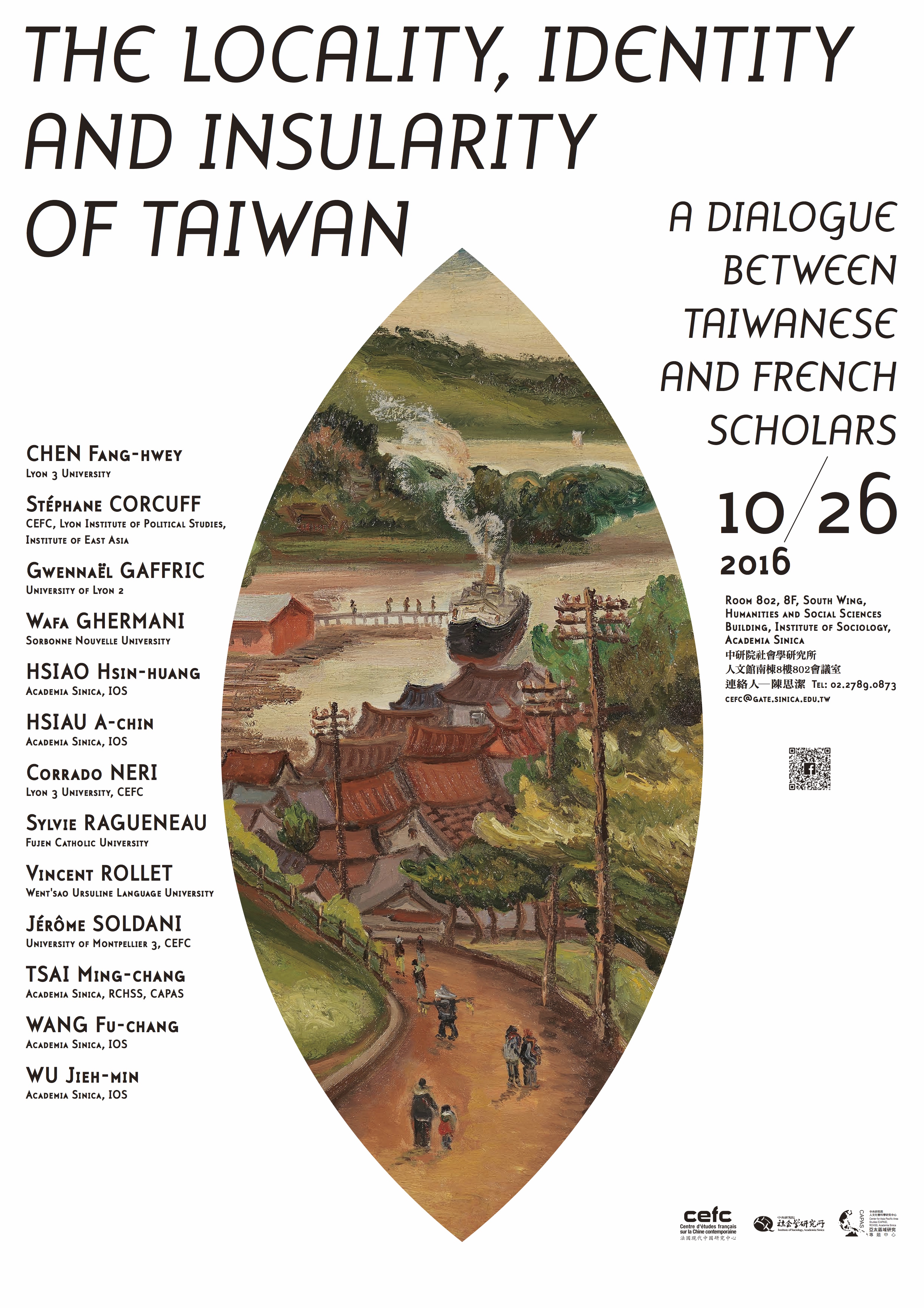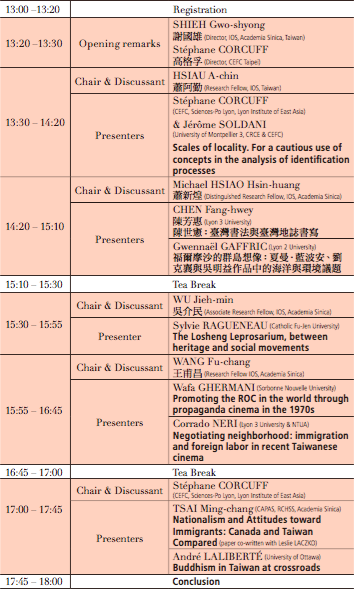
Organizers:
CEFC Taipei, Institute of Sociology and CAPAS, Academia Sinica
Summary:
The Taipei office of the French Research Center on Contemporary China (CEFC), its director Stéphane Corcuff, and its associate researcher Jérôme Soldani cordially invite you to the workshop The Locality, Identity and Insularity of Taiwan. A dialogue between Taiwanese and French Researchers, to be held on October 26, 2016 at the Institute of Sociology, Academia Sinica.
This event will introduce you to a collective work by researchers from Taiwan, France and Canada on the question of Taiwanese identities in the context of the so-called “globalization” of the world. Presentations will be in English and Chinese.
From the scales of “locality” to the constructed nature of “insularity”; from Chen Shih-hsien’s Taiwanized calligraphy to the question of archipelago in Wu Ming-yi’s novels; from the “patrimonialization” of the former Losheng Leprosarium to the promotion of the ROC in the 70s through propaganda films; and from the nationalism toward immigrants to the globalization of Buddhism in an outward movement starting from Taiwan, we will present a selection of the twenty case studies chosen to compose the French-language collective book Taiwan est-elle une île ? Une insularité en question dans la globalisation (Is Taiwan an Island? An insularity in question under globalization) (forthcoming, 2017).
Together, we will address the issue of what the fact (or the perception) of being an island, or an archipelago, socially means for Taiwan, beyond the mere geographical given of Taiwan’s insularity. We will try to show how insularity and locality are, just as identity, social constructs. We will study how political, ethnic, cultural or national identifications are constructed and redefined over longer periods of time, through political, generational and geopolitical changes. We will interpret locality as a flexible tool that can be mobilized from the smallest to the largest geographical scales. We will, in fact, question the validity of the very distinction between local and global, suggesting that the global may be the ultimate form of the local, with the global village as its unreachable horizon.
Rather than the exclusive part of a single bigger cultural or political entity, Taiwan is at the crossroads of different cultural areas (the Austronesian world, the han cultural sphere, on the Kuroshio current…) and hence at the centre of different possible scales of locality offering a multiplicity of possible projections and identifications.
Stéphane Corcuff & Jérôme Soldani
Detail of the programme:

Attendence is free but registration is necessary.
Please send your name and surname at:
cefc@gate.sinica.edu.tw
Access and transportation:
http://www.sinica.edu.tw/en/site/location.html
http://www.ios.sinica.edu.tw/ios/indexE.php?from=46
Illustration:
Detail from 滿載而歸, Chen Ch’eng-po, 1937 (private collection)
With the kind authorization of the Chen Ch’eng-po Foundation

